Crashing Weibo
US House Speaker Nancy Pelosi’s visit to Taiwan briefly crashed Weibo, the Chinese equivalent of Twitter, as millions in the country discussed and debated her Asia trip. The microblogging platform apologized for a half-hour outage of its mobile app in the period immediately before Pelosi’s landing at 10:40 p.m. on Tuesday, when countless messages tracking her plane flooded social media.
Source: Bloomberg
Why is Pelosi going to Taiwan?
I found these three pieces particularly illuminating as background.
BBC on Pelosi’s long history of clashes with Beijing.
28 years ago, we traveled to Tiananmen Square to honor the courage & sacrifice of the students, workers & ordinary citizens who stood for the dignity & human rights that all people deserve. To this day, we remain committed to sharing their story with the world. #Tiananmen30 pic.twitter.com/7UqiJVRS3t
— Nancy Pelosi (@SpeakerPelosi) June 4, 2019
Andrew Desiderio at Politico on the making of a progressive hawk.
The FT added a constitutional angle:
“She has a long record of not bowing to Chinese pressure and feels passionately about upholding the principle of Congress being a co-equal branch of government,” Hass said.
Extent of China’s military exercises around Taiwan has massively expanded since 1996.
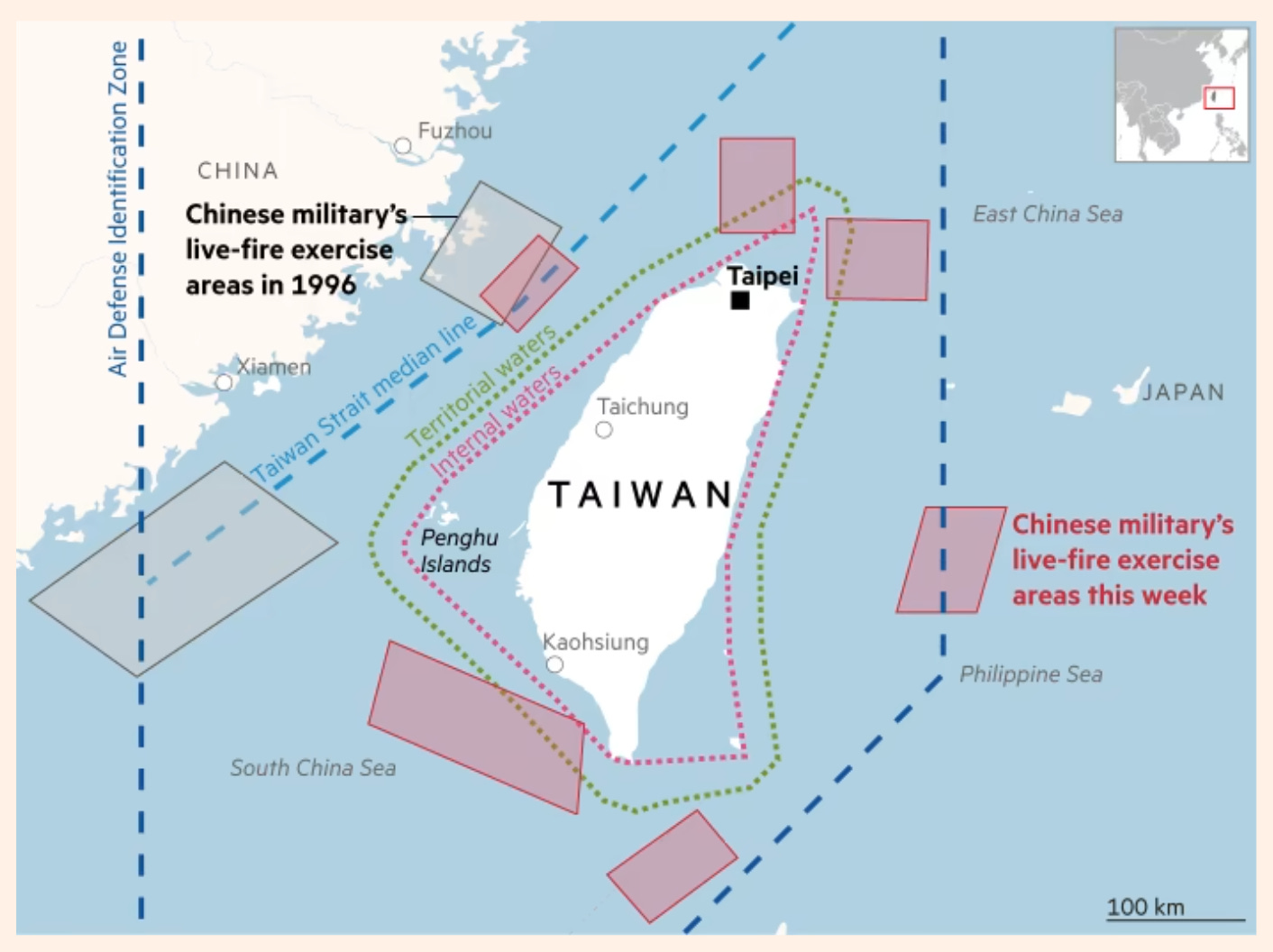
Source: FT
Economic Fall Out
Hal Brands wrote in June that the economic fallout from a Taiwan invasion would make Ukraine’s ructions feel like a ride on Taylor Swift’s jet in comparison.
That seems about right!
Waterways
China’s military drills are not just far more expansive than in the 1990s, they are taking place in some of the world’s busiest seaways.

US Bond market ricochet
John Authers at Bloomberg, as ever excellent
Yields have dropped precipitously in recent weeks, despite the lack of any clarity that inflation is over. And that led to an extraordinary trading session Tuesday as they boomeranged back upward. House Speaker Nancy Pelosi can claim a starring role with her fraught visit to Taiwan. Barring only the two worst days of the first Covid shutdown, and the Monday in June when the Fed leaked its intention to hike by 75 basis points at its next meeting, this was the biggest daily gain for 10-year yields in five years:

China’s stock markets
Despite the nationalist outbursts on weibo, the Chinese stock markets have not enjoyed the war scare.

Source: Daily Shot
China’s sliding into recession?
Beyond the Taiwan scare, the outlook for the Chinese economy is increasingly grim.
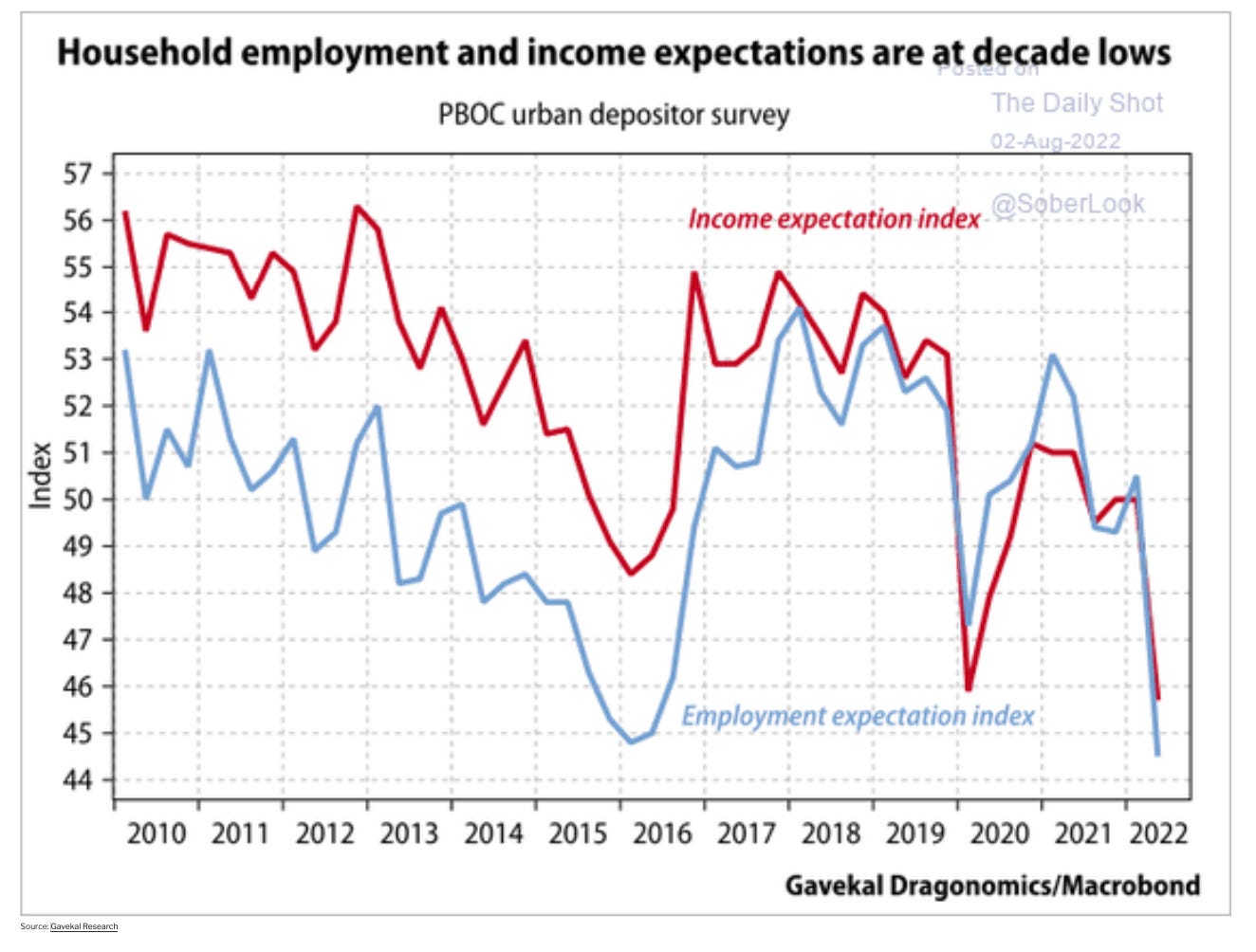
As the real estate sector goes into crisis, one of the principal industrial victims is the steel industry. The growth in the sector from the 2000s was a spectacular industrial revolution. Now the sector is in deep trouble.

As Caixin reports:
China’s steel industry is entering a precarious new era as a worsening property crisis imperils demand and Beijing’s construction-led growth model looks increasingly untenable. Almost a third of China’s steel mills could go into bankruptcy in a squeeze that’s likely to last five years, Li Ganpo, founder and chairman of Hebei Jingye Steel Group, warned in June at a private company meeting. “The whole sector is losing money and I can’t see a turning point for now,” he said, according to a transcript of the gathering seen by Bloomberg News.
Taiwan’s robust growth
If real estate & steel are the critical domestic policy issues for Beijing, the main battlefield between China and the US, in which Taiwan is a key are, are microchips
Out of the limelight, as Caixin reports, the Biden administration is progressively tightening the noose on China’s microchip sector by widening the bans on equipment exports to China from 10 nm to the much more prosaic 14 nm generation of chips.
Chip crackdown
Beijing is carrying out a fierce crackdown on executives and bureaucrats tied to the microchip industry. A series of investigations have targeted senior figures associated with Tsinghua Unigroup Co. Ltd.
Caixin: The head of China’s biggest semiconductor investment fund is under investigation in the latest of a series of graft scandals rattling the state-backed fund. Ding Wenwu, president of China Integrated Circuit Industry Investment Fund, has been probed by authorities and remained out of contact, several people with knowledge of the matter told Caixin. The fund, known as the “Big Fund,” is a key part of China’s drive to develop its homegrown integrated circuit industry to reduce reliance on imported technology.
Caixin: Two more senior executives of China’s Tsinghua Unigroup Co. Ltd. face investigations as the debt-laden semiconductor conglomerate wraps up a bankruptcy reorganization.
From shortage to glut
Right now the Taiwanese economy is buoyed by dramatic recovery growth. Though much slower than China’s, growth has remained robust through Q2 2022.
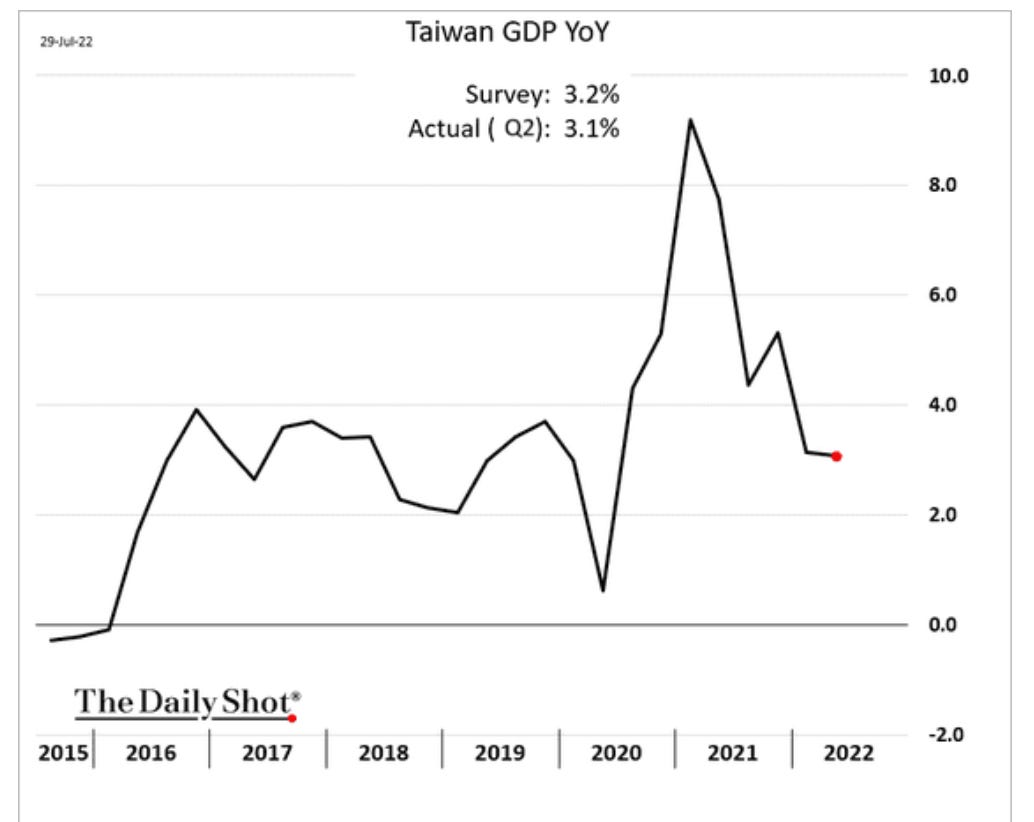
Source: Daily Shot
But, looking forward as the Chinese economy slows, this is very bad news for Taiwan.
The U.S. and the Chinese mainland are Taiwan’s two largest export markets, which combined account for just over half of the island’s overseas shipments. An economic slowdown in the U.S. has sparked recession talk as officials struggle to rein in the highest inflation in 40 years without cratering the economy. The Chinese economy, meanwhile, has been weighed down by ongoing Covid outbreaks and resulting regional lockdowns, leading economists to downgrade their forecasts for growth in 2022 to 3.9% in a recent Bloomberg survey.
Taiwan’s export-driven growth may be about to come to an end.
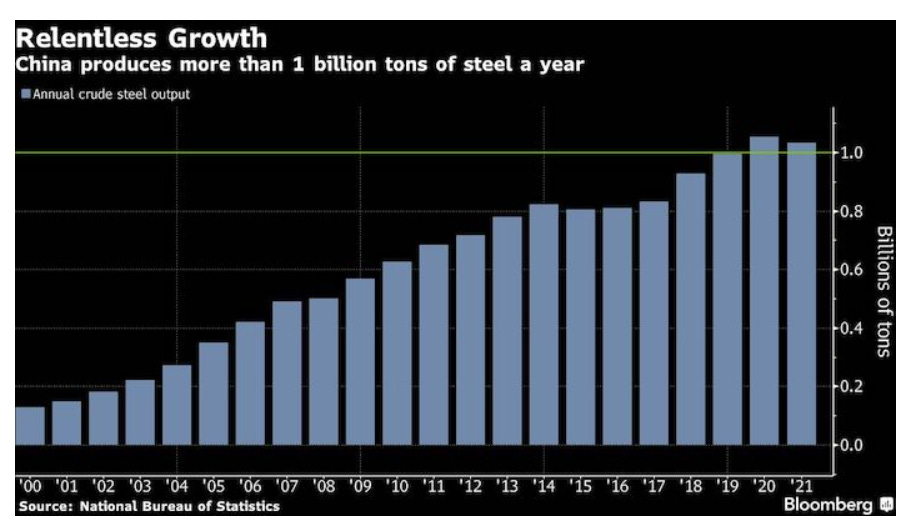
Looking ahead, both Taiwanese and Korean equity markets are pricing in a slump in microchip demand to come.
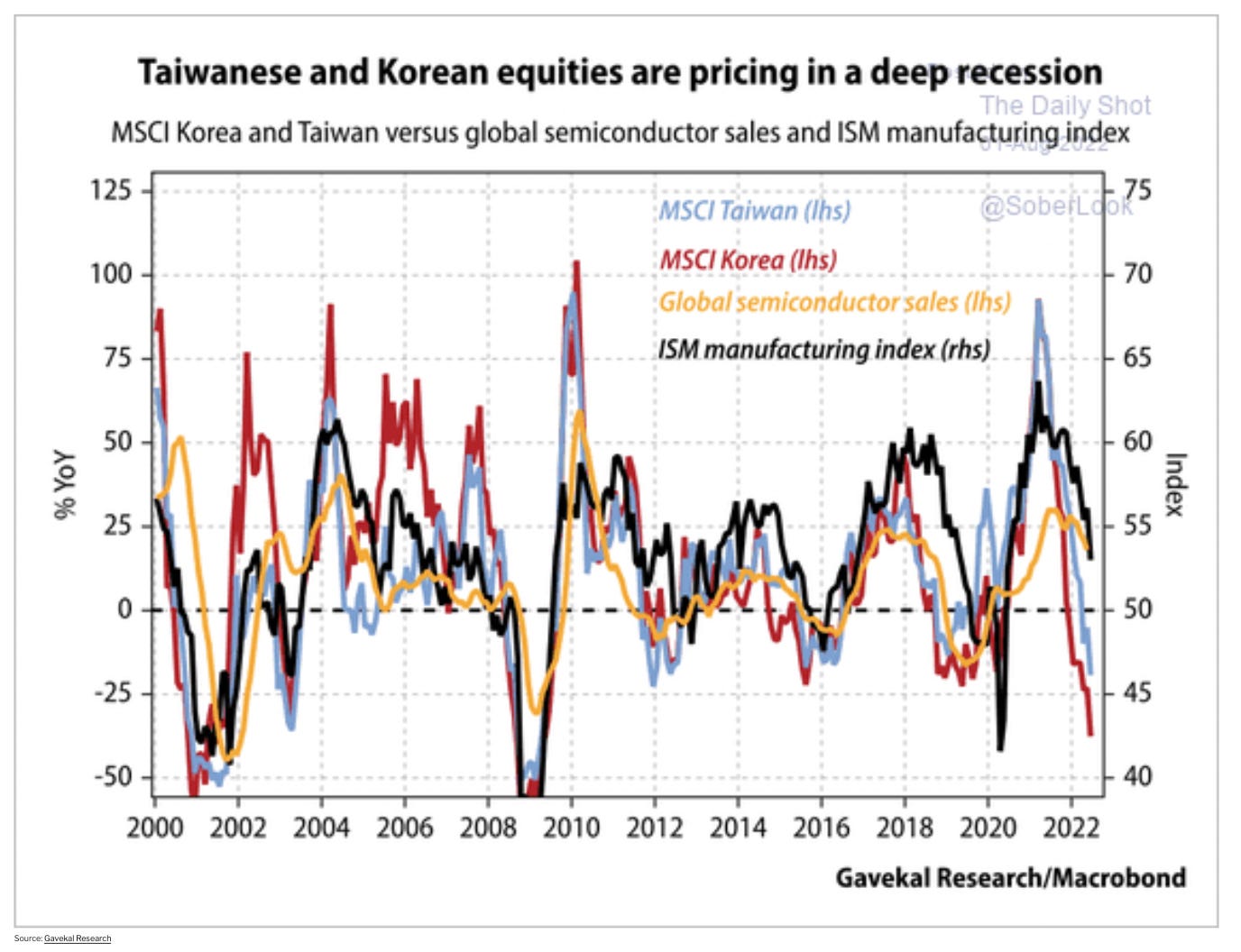
Source: Gavekal via Daily Shot
The economic upshot? In the second half of 2022 we may see both Europe and East Asia struggling with serious recessionary and deflationary pressures.
